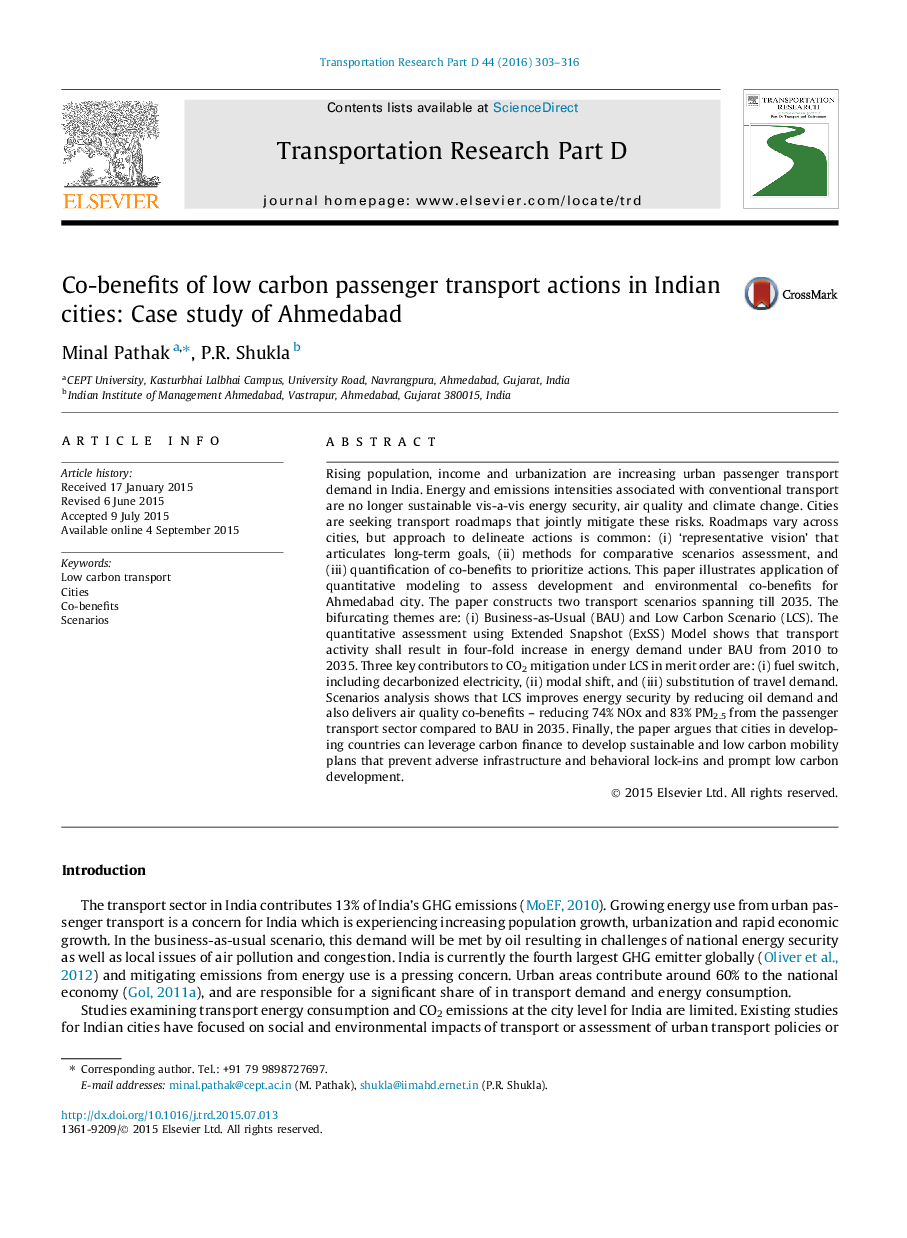| کد مقاله | کد نشریه | سال انتشار | مقاله انگلیسی | نسخه تمام متن |
|---|---|---|---|---|
| 1065664 | 1485879 | 2016 | 14 صفحه PDF | دانلود رایگان |
• Scenarios modeling method for sustainable and low carbon urban transport.
• Averting adverse lock-ins in short-term to gain sustained long-term co-benefits.
• Vehicle pollution standards, e.g. Euro-norms, contribute little to CO2 mitigation.
• CO2 emissions mitigation policies reduce vehicle air pollution sizeably.
• Cities can use carbon finance instruments to leverage low carbon projects.
Rising population, income and urbanization are increasing urban passenger transport demand in India. Energy and emissions intensities associated with conventional transport are no longer sustainable vis-a-vis energy security, air quality and climate change. Cities are seeking transport roadmaps that jointly mitigate these risks. Roadmaps vary across cities, but approach to delineate actions is common: (i) ‘representative vision’ that articulates long-term goals, (ii) methods for comparative scenarios assessment, and (iii) quantification of co-benefits to prioritize actions. This paper illustrates application of quantitative modeling to assess development and environmental co-benefits for Ahmedabad city. The paper constructs two transport scenarios spanning till 2035. The bifurcating themes are: (i) Business-as-Usual (BAU) and Low Carbon Scenario (LCS). The quantitative assessment using Extended Snapshot (ExSS) Model shows that transport activity shall result in four-fold increase in energy demand under BAU from 2010 to 2035. Three key contributors to CO2 mitigation under LCS in merit order are: (i) fuel switch, including decarbonized electricity, (ii) modal shift, and (iii) substitution of travel demand. Scenarios analysis shows that LCS improves energy security by reducing oil demand and also delivers air quality co-benefits – reducing 74% NOx and 83% PM2.5 from the passenger transport sector compared to BAU in 2035. Finally, the paper argues that cities in developing countries can leverage carbon finance to develop sustainable and low carbon mobility plans that prevent adverse infrastructure and behavioral lock-ins and prompt low carbon development.
Journal: Transportation Research Part D: Transport and Environment - Volume 44, May 2016, Pages 303–316
